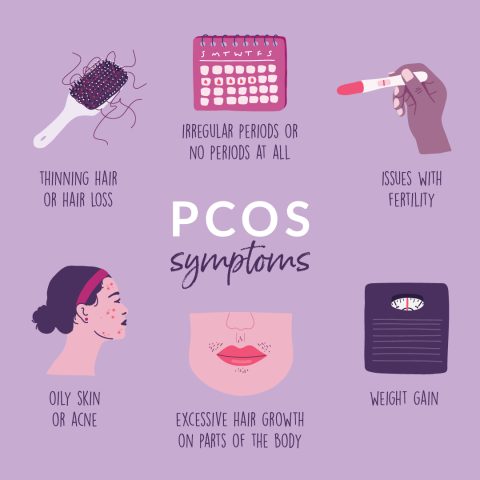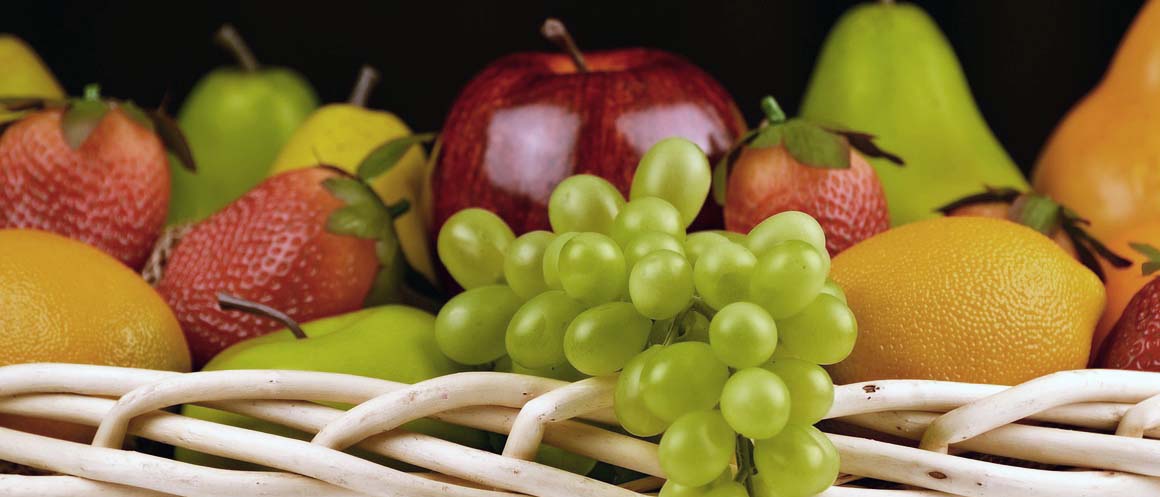Polycystic Ovary Syndrome (or PCOS for short) is a hormonal disorder with symptoms which can affect your periods. Receiving a PCOS diagnosis can throw up a range of questions. Can I treat my symptoms? Will it affect your fertility? Is PCOS the culprit for why your is period late?
PCOS can have a big impact on the metabolism and make it harder to lose weight, although even weight loss of up to 5% can significantly improve PCOS. It’s possible to make some lifestyle changes to help minimise the effect of PCOS or even help naturally reverse some symptoms.
Some of the common symptoms include:

- irregular periods or no periods at all
- issues with fertility
- excessive hair growth on parts of the body
- weight gain
- thinning hair or hair loss
- oily skin or acne
Making changes to your diet when looking into ways of reversing and managing symptoms of PCOS can feel daunting. Especially when you feel you have tried everything. It’s a complex condition and will take time, persistence and ongoing management.
The truth is, there is no magic drink or special food that can ease your symptoms quickly. But there are a few small changes you can make to your diet that might help you feel less bloated and more energetic.
Remember, it’s trial and error. Be kind to yourself along this journey. Even though changes to what you eat will help your PCOS, some foods will simply be good for your soul – and that’s just as important.
PCOS diet yes’s
High fibre foods
High fibre foods slows digestion and minimises the effect of sugar in the blood. This is important for people with PCOS as they may experience insulin resistance.
Some of our favourite high fibre ingredients to keep you fuller for longer include:
- Lentils
- Berries
- Almonds
- Sweet potatoes
Why not try a delicious sweet potato and lentil curry to curb those carby cravings you might be feeling.
Fatty fishes
Many people with PCOS have problems with bloating, often aggravated by certain foods.
Fishes such as salmon and tuna are full of healthy fats and protein. These can also act as an anti-inflammatory to beat bloating.
Turmeric
For people for PCOS, it’s important to manage cortisol levels. Cortisol is a powerful hormone released in your body in response to stress. But it also causes your body to have an increase blood glucose level.
Inflammation and elevated cortisol can often go hand in hand. Incorporating a powder (or in supplement form) like Turmeric can help aid digestion and therefore reduce levels of inflammation and cortisol.
As well as these benefits, Turmeric can also support your joint and skin health.
PCOS diet no’s
Fizzy or sugary drinks
Your daily intake of sugar should no more than 7 teaspoons – your average can of pop will take 6 of those up. Also bear in mind, many alcoholic drinks also have a high sugar content. Insulin resistance can play a part in your PCOS, so the added sugar intake will be doing no favours.
Why not instead opt for water infused with your favourite fruit (raspberries) or veggies (cucumber) for a unique yet hydrating treat!
Gluten-based foods
Whilst there is no evidence to suggest that gluten-based foods can directly affect PCOS symptoms, people with PCOS tend to have higher markers of inflammation, boosted by gluten consumption.
So, if you’re feeling a bit more bloated than usual after a meal, consider whether that might be a result of gluten!
Try swapping wheat flour-based foods with buckwheat or swap pasta with zucchini noodles.
Unhealthy or highly processed fats
Foods like chips, cookies and other fried foods (yes, our favourites too) are also a no go. These deliciously unhealthy fats can increase your risk of obesity, as well as oestrogen production. A further imbalance of hormones can worsen symptoms of PCOS.
Of course, it’s important to have a little bit of everything in moderation – you absolutely deserve to treat yourself from time to time!
I think I have PCOS, what do I do?
If you think you may be experiencing symptoms of PCOS, speak to your GP/healthcare professional who will provide you with the correct tests and next steps.












